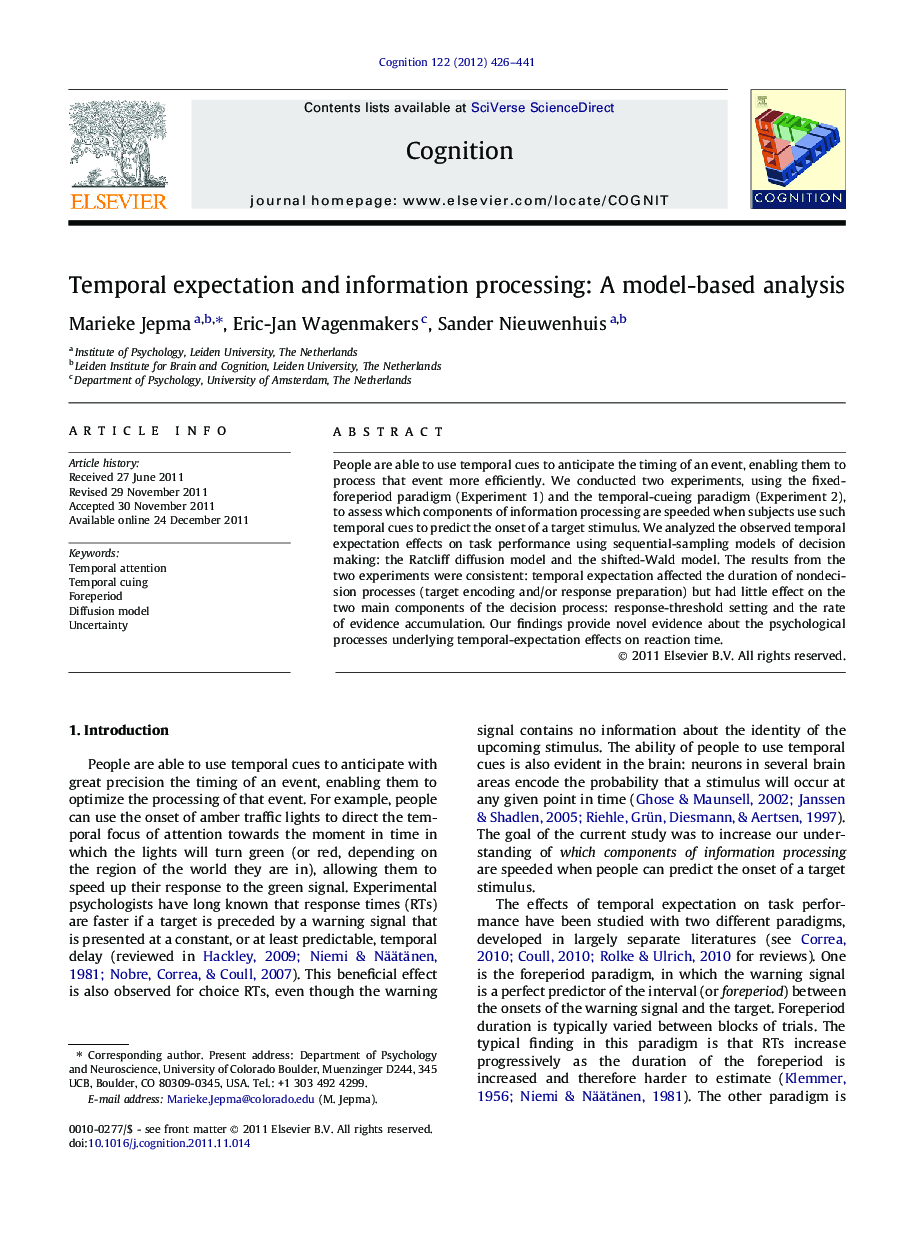| Article ID | Journal | Published Year | Pages | File Type |
|---|---|---|---|---|
| 926929 | Cognition | 2012 | 16 Pages |
People are able to use temporal cues to anticipate the timing of an event, enabling them to process that event more efficiently. We conducted two experiments, using the fixed-foreperiod paradigm (Experiment 1) and the temporal-cueing paradigm (Experiment 2), to assess which components of information processing are speeded when subjects use such temporal cues to predict the onset of a target stimulus. We analyzed the observed temporal expectation effects on task performance using sequential-sampling models of decision making: the Ratcliff diffusion model and the shifted-Wald model. The results from the two experiments were consistent: temporal expectation affected the duration of nondecision processes (target encoding and/or response preparation) but had little effect on the two main components of the decision process: response-threshold setting and the rate of evidence accumulation. Our findings provide novel evidence about the psychological processes underlying temporal-expectation effects on reaction time.
► We examine temporal-expectation effects on information processing using sequential-sampling models of decision making. ► Temporal expectation affects the duration of nondecision processes (target encoding and/or response preparation). ► Temporal expectation has little effect on the decision process. ► Results are consistent across the fixed-foreperiod paradigm and the temporal-cueing paradigm.
